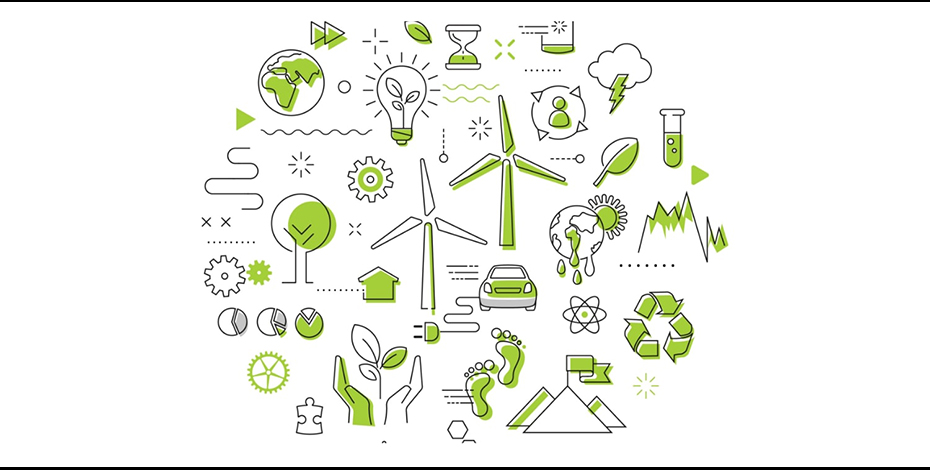
The nature of physiotherapy is in your hands

Emerging infectious diseases that could decimate human populations have been the traditional focus of the One Health concept. Dr Ken Winkel asks whether we can expand the idea to put nature-centred practice at the heart of healthcare.
One Health and its associated approaches to the health and wellbeing of people, animals and the planet are part of a proposed new way of thinking that challenges the way healthcare is delivered in a number of domains, says Dr Ken Winkel.
Speaking at the recent APA FOCUS 2022 physiotherapy conference, Ken said that the One Health approach allows us to imagine how we could do things better.
It is, he says, a chance to embrace our essential collaboration with nature.
‘Our food and the air we breathe come from nature; we are feeding our internal ecosystem every hour.
'How we deal with that—how we collaborate with or undermine our relationship with nature—is profoundly important for our wellbeing as well as that of our planet,’ he says.
‘One Health is a coathanger for a lot of ideas.
'However, when I tried to find some literature on the subject of One Health in industry—in physiotherapy and allied health—I couldn’t really find anything.’
Ken, an Associate Professor within the Melbourne School of Population and Global Health at the University of Melbourne and an honorary fellow of the university’s Medical History Museum, says that One Health had its roots in the work of German physician Dr Rudolf Virchow, the famous anthropologist, pathologist and founder of modern cellular pathology.
Dr Virchow was interested in the connection between animals and human health through common pathology and anatomy.
Ken, too, is a leading toxicologist and a member of the biodiversity committee of Doctors for the Environment Australia.
‘Virchow was very interested in the social environment and ecological consequences and he famously put those things together.
'And putting things together in a transdisciplinary way is what modern One Health has done,’ he says.
The Food and Agriculture Organization of the United Nations describes One Health as ‘an integrated, unifying approach that aims to sustainably balance and optimise the health of people, animals and ecosystems’.
Similar definitions are given by the World Organisation for Animal Health, the World Health Organization and the United Nations Environment Programme.
‘One Health recognises the interconnection of all those things.
'It brings experts together across the disciplines of animal, ecosystem and human health—such as doctors, vets, environmental scientists and anthropologists—all working together on different regional scales, communicating and looking for new ways to address these common challenges.
‘The problem is that historically, this approach has focused on pandemics and emerging infectious diseases—pathogens from nature—rather than solutions from nature.
'That’s where there’s an opportunity to draw in allies, such as physiotherapists, to think about new ways of engaging with nature.’
Ken says that environmental, governance and corporate social responsibility policies are often bandied about as panaceas for the world’s environmental problems.
‘These are things that companies can embrace to say “Look how good we are at addressing environmental social goals” and there’s certainly nothing wrong with aspiring to this.’
There are a number of ways, Ken says, that people can think about reducing the use of scarce resources while still appropriately addressing health needs.

Dr Ken Winkle.
He says the World Health Organization recently released a special report on this issue, which, in part, looks at the waste hierarchy and what role participants in the health space can play in actively reducing waste in a sustainable way.
‘That goes all the way down to trying to recycle wherever possible and reducing and re-using.
'We need to prioritise this kind of thinking instead of saying that “waste is somebody else’s problem”.
'Masks, plastic— it’s all about infection control and privileging patient care, with no interest in the waste part of the problem. But we should all be interested in this because we are wasting resources everywhere,’ he says.
‘A buzzword that’s emerged in recent decades is “value-based care”—not low-value care, not harmful care, but high-value care with a strong evidence base that is low carbon.
'Low-value care, inevitably, is high carbon so it’s a waste of resources.
'There is a need to integrate carbon consideration into healthcare processes and procedures so we can articulate a massive carbon footprint of low-value and harmful care.
'We need to promote this idea throughout the healthcare system and to ask questions about whether the focus is in the right place when it comes to resource use.’
Ken says that the leading coalition of healthcare practitioners, the Climate and Health Alliance, has begun promoting sustainability and addressing climate change.
‘It has all kinds of tools and resources available to show you how you can change your practice to be more sustainable.
'I urge you to have a look and to join the Global Green and Healthy Hospitals program, which also offers a suite of tools and resources.
'Topics range from treating waste in a sustainable way to developing a purchasing strategy that prioritises community and environmental health and safety while also reducing costs.’
© Copyright 2024 by Australian Physiotherapy Association. All rights reserved.





